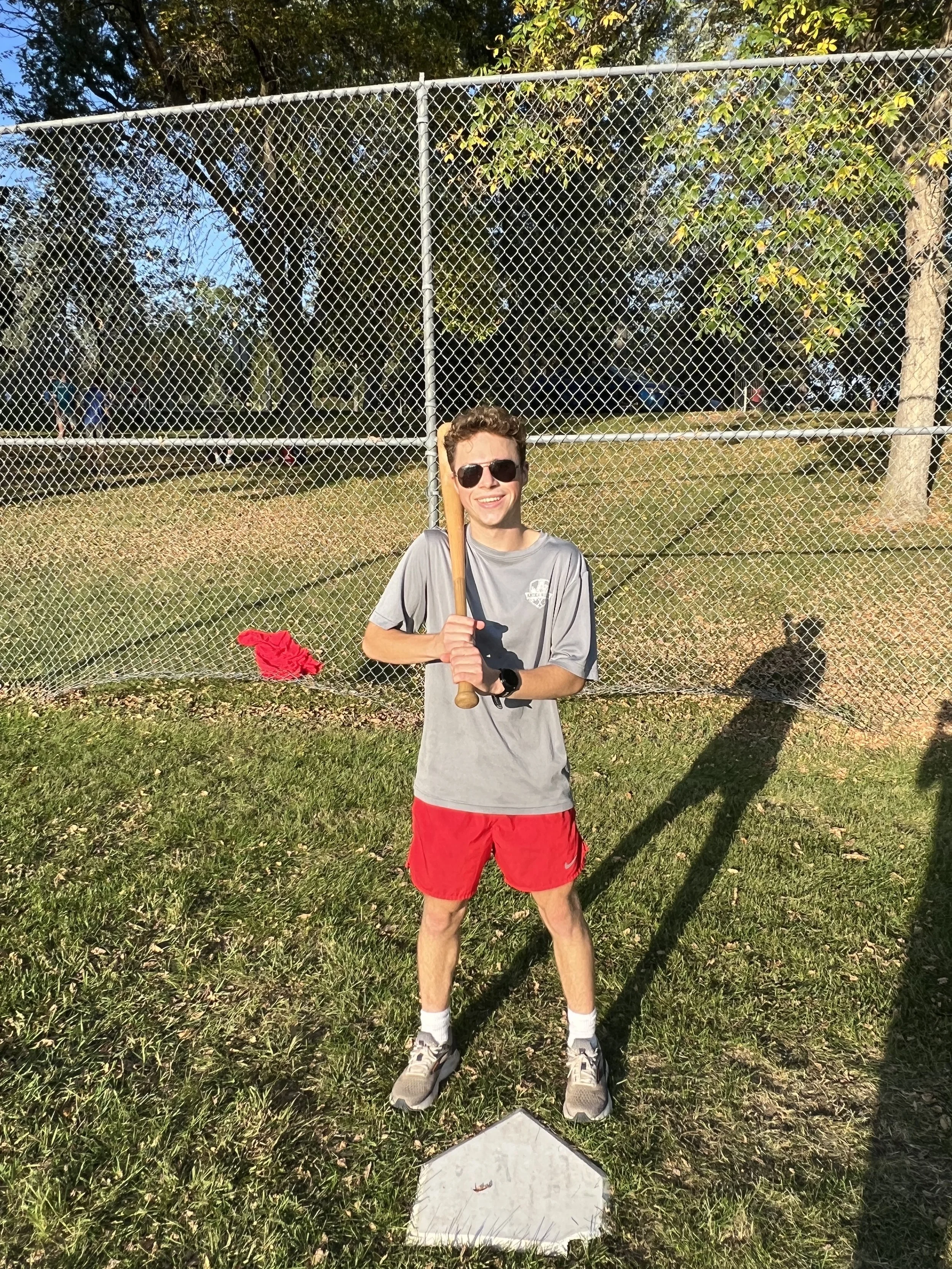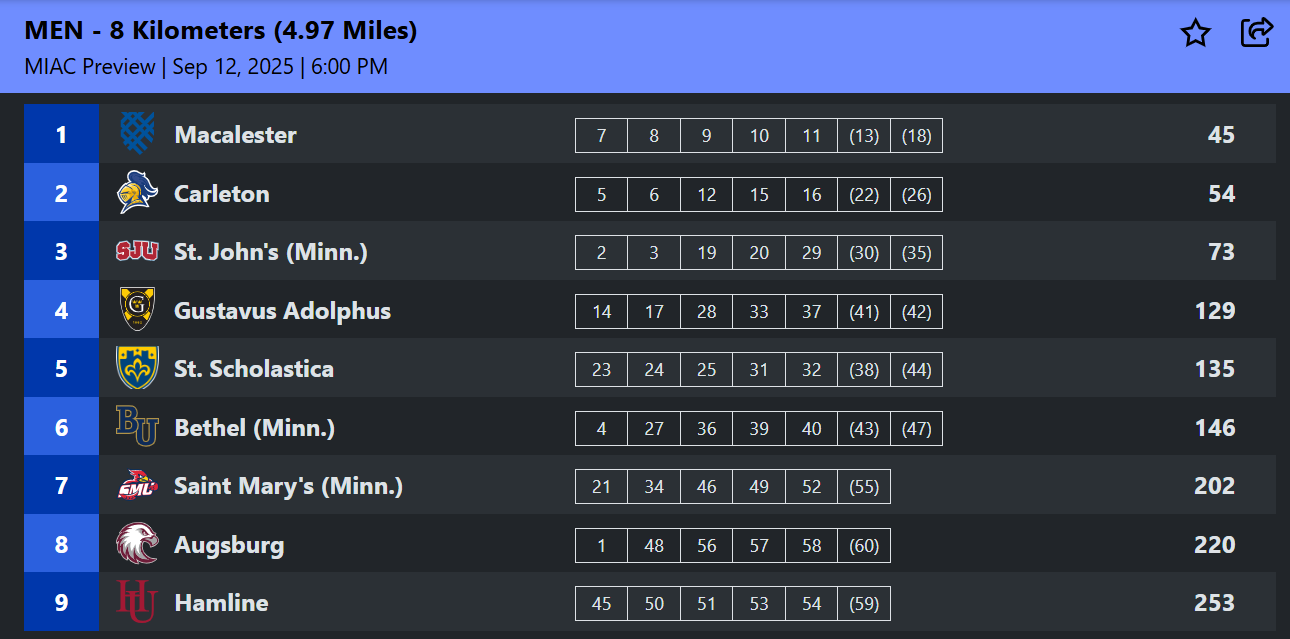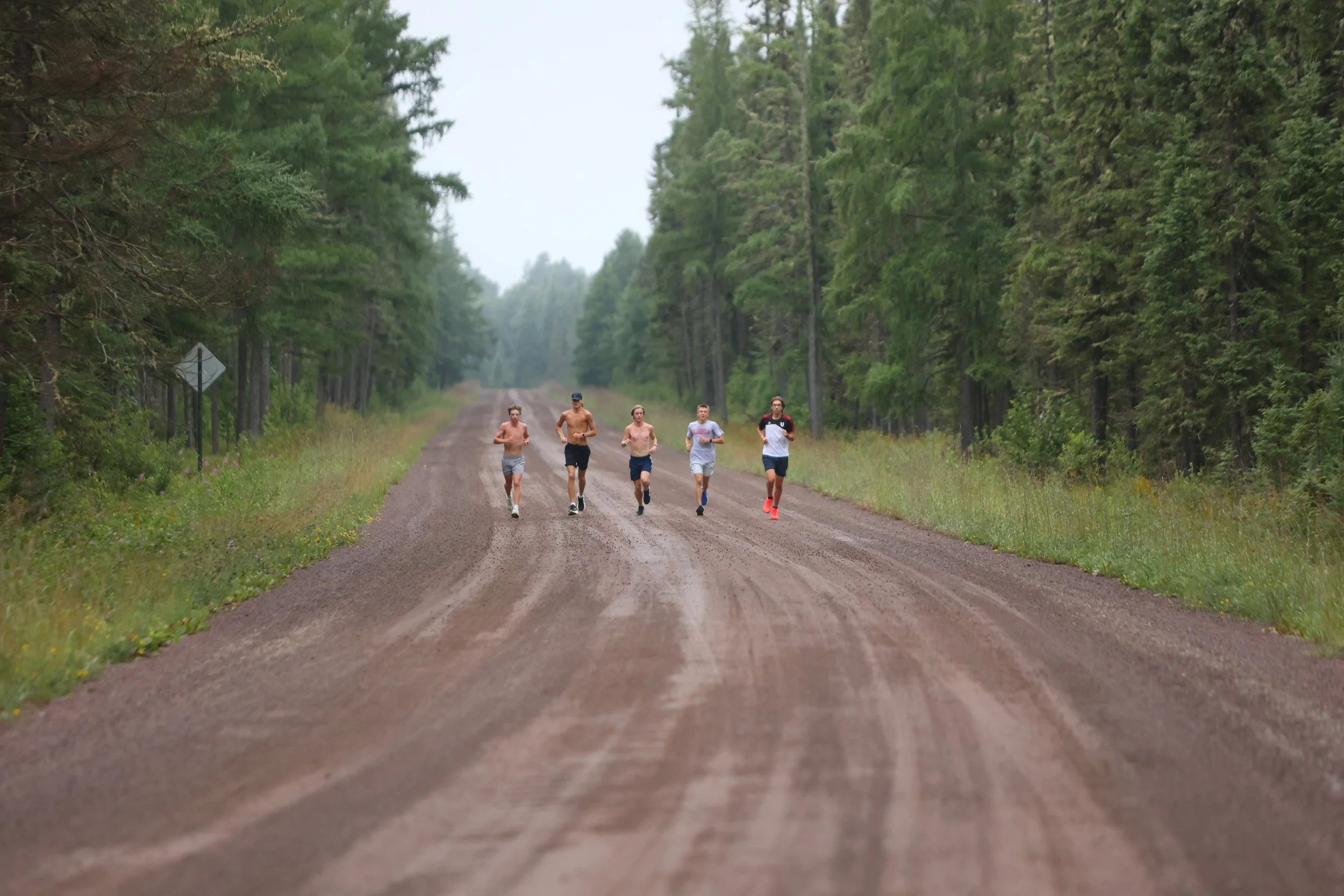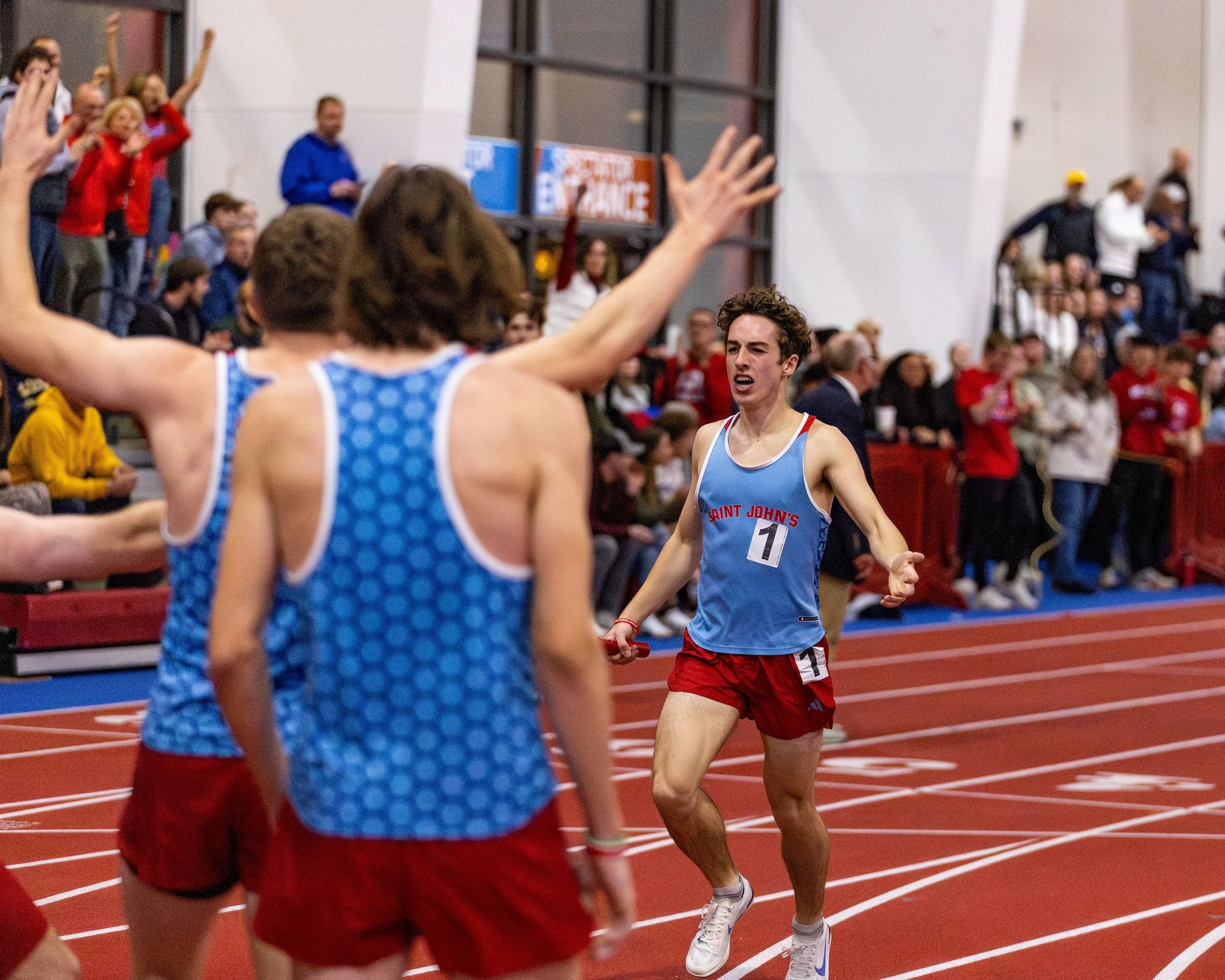This is a busy week in Collegeville with our Fall Finale on Friday and our top eight readying for the Central Regional next Saturday, November 17, at Wartburg College in Waverly, Iowa. Friday looks to be racing friendly: 33 degrees and 10 mph on a course that is pretty-well protected. Visiting teams will be Gustavus, Hamline, Bethel, Martin Luther, five Golden Gophers running unattached, and of course Saint Ben’s running on the women’s side. Race time is 4:30 PM.
Last Saturday at the MIAC Championship on Carleton’s outstanding course, pretty much our whole team stepped forward with much better races, and we finished sixth with 143 points. Senior Trey Collins (17th, 26:02) and freshman Tom Nemanich in (25th, 26:14) earned Honorable Mention All-Conference. Junior Noah Webb (26th, 26:15), sophomore Andy Goldsmith (34th, 26:32), and freshman Mitchell Grand (41st, 26:56) completed our scoring five. Sophomore Justus Fast (49th, 27:05) and junior Ryan Houseman (51st, 27:06) came 6th and 7th.
This was a big step forward for the team. A “finally” meet, and it was fun to see. We were better positioned in the early going and moved up throughout. We come out of this meet with a different view of the Regional, especially with sophomore Dillon Diekmann (a little bit snake bit with injuries) rejoining his teammates in Waverly. I like this team.
We are not finished yet and, to that end, I am including below a column I wrote for The Record in March of 1996. Each coach in turn was asked to report on their team’s season, and it was my turn.
IT’S NEVER TOO LATE
This is undoubtedly the worst time to ask me to write a column. March is the longest month of our season. We have been training either on icy roads or indoors for eight weeks. We competed in the conference indoor meet the first weekend of the month and now are in a watching and waiting mode to see how soon the snow will disappear. (The ice was entirely off the Sag on March 26 in 1981, a very good year.) The Palaestra arena is never more stark and barren than during these days in March. Late in the month I know I will be questioning my life decision to become a track and field coach, never mind that eleven months of the year I am confident I have the best possible "job". And so I was reassured this morning when Dan Besemann, our decathlete who loves our sport as much as anybody I know, told me he's got the blahs, too. He had just finished throwing the discus ... into a net. And it is reassuring to know, from experience, that all will be better than well on that first day I am standing under glorious sunshine and watching our track and field athletes do track and field things.
In the meanwhile, we have a lot of work to do, and we keep on keeping on. Cross country and track and field are much more about training than playing. Fans and fanfare are few, but I am more than appeased by knowing our sport has great appeal to folks who value intrinsic rather than extrinsic rewards. These are good people to join in an endeavor.
In 1972 Frank Shorter won the Olympic Marathon in Munich. In 1976 he finished second in Montreal. I was student teaching at Cretin High School in St. Paul, and my supervising teacher's summation of Shorter's finish was simple: "Poor Shorter. Four years of training wasted." Never mind that this fellow was an exceptional chemistry teacher; he failed to appreciate that, for Shorter, the real reward of averaging 120 miles per week over an eight year period was in the journey. When we undertake any serious athletic endeavor, we have to understand that, on that final day, there are no guaranteed walks to the top step (or any step) of the victory stand. The journey alone may have to be enough, and so it had better be.
That being so, I will still tell one story with a happy ending.
Mike McGowan and I began together at Saint John's in the fall of 1979, he as a freshman distance runner and me as cross country and track and field coach. Mike had been a state champion in the mile at Blue Earth, and he enjoyed an exceptional freshman season at Saint John's, finishing fifth at 1500 meters at the MIAC championship. His time, 3:55.7, was the equivalent of a 4:15 mile.
Over the next three years, Mike showed marked improvement in cross country, but after finishing a disappointing fifth in his final MIAC championship, his 1500 meters best remained at 3:55.7. He had yet to ever qualify for an NCAA track and field championship. One week later, Mike toed the line at the Carleton Last Chance Meet. He ran a smart and relaxed race and crossed the finish line in 3:52.1, setting a school record, qualifying for nationals, and sending his teammates into a whooping frenzy. My scalp tingled. Mike graduated the next day (he called it a "good" weekend), and the following Thursday he improved again to
3:51.9 in the qualifying round at the NCAA championship. In Saturday's final he finished ninth in 3:49.9, faster than five of the winning times in years since.
Happy endings are never guaranteed. We know only one thing for certain: if Mike McGowan had not brought his humility and pride to that Carleton starting line, his personal best would still be 3:55.7. His real glory was in having tried. Another moral: it is never too late.
Telling old stories is pleasant. Seeing new ones unfold, especially in outdoor championship competition, is exciting. And so we keep on training in anticipation of new stories and new heroes. It's enough to keep a guy going, even in March.
Tim Miles
March, 1996
Championship Weather. Jack Colleran at the 2017 Fall Finale






























